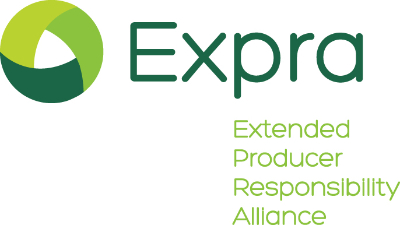A PICTURE OF EPR – ISWA COMPILATION OF VIEWS AND EXPERIENCES AROUND EPR
A collection of papers on the history and current status of EPR programs and producer responsibility programs around the world.
Extended Producer Responsibility (EPR) is an environmental policy approach designed to shift the burden of managing certain end-of-life products from municipalities and taxpayers to the producers who place those products on the market. Beyond the end-of-life management stage, EPR also stimulates greater engagement of producers in the overall redesign of products and packaging, with the ultimate aim of reducing environmental and health impacts.
The papers in the collection here delve into the theory behind EPR and describe numerous practical examples of various approaches that exist across the world and across product categories. They address many of the product categories covered by EPR systems in different parts of the world, including packaging and printed paper, paint, tyres, mattresses, and textiles.
There is no single way of implementing EPR, as the legal and reality context differs from country to country, sometimes even from region to region, making it very difficult to compare or benchmark different EPR systems. However, the accumulated knowledge and lessons learnt over the last 30 years should inspire further progress in the years to come. The Governance and Legal Issues Working Group developed this EPR library to begin to bring this wealth of knowledge together while respecting and exploring the differences of various EPR schemes and experiences within these, whether relating to the political, economic and social realities they exist in or to their material coverage.
Many of the contributions in this collection are from stewardship or Producer Responsibility Organizations (PRO’s). EPR legislation often allows producers to comply individually or to work with multiple producers to form a PRO to carry out producers’ obligations. PRO’s are funded by the producers and are typically established as non-profit organizations. In several papers in this collection, PRO’s share insights into their programs and discuss contemporary issues, including:
- “Monopolistic” and “competitive” systems. Multiple PRO’s can exist within a product category in a jurisdiction. Programs where there are multiple PRO’s are described as “competitive,” while those with one PRO are described as “monopolistic.” Several papers address the effectiveness of these different types of systems.
- “Shared” and “full responsibility” systems. How much responsibility a producer possesses within an EPR system varies among programs. In “shared responsibility” EPR programs, governments retain a substantial share of financial or management responsibility (e.g., a 50% cost share). In “full responsibility” programs, producers take financial and management control of the system, while government provides oversight.
- “Mandatory” and “voluntary” targets. EPR programs also vary in terms of who sets collection, recycling, and other targets. Governments can prescribe specific targets in regulation or can allow producers to play a larger role in determining targets.
The collection also includes contributions from non-governmental organizations and academics. Papers examine program characteristics and results, provide country-specific EPR history, compare programs across a product category, and more. Authors contributed papers from 16 countries.
The collection was compiled by Joachim Quoden, chair of the ISWA Government and Legal Issues Working Group and MD of EXPRA, and the Product Stewardship Institute (PSI) on behalf of ISWA, for the 29th ISWA World Congress in Bilbao, Spain, from 7-9 October. PSI is a nonprofit organization that sparked and has led the U.S. product stewardship movement since 2000. With hundreds of government members, and 125 partners from the private and nonprofit sectors, PSI helps research, design, implement, evaluate, and promote producer responsibility laws and voluntary programs that solve recycling and waste management issues to create a circular economy.
For more information, contact Joachim Quoden, Chair of the ISWA Government and Legal Issues Working Group.

